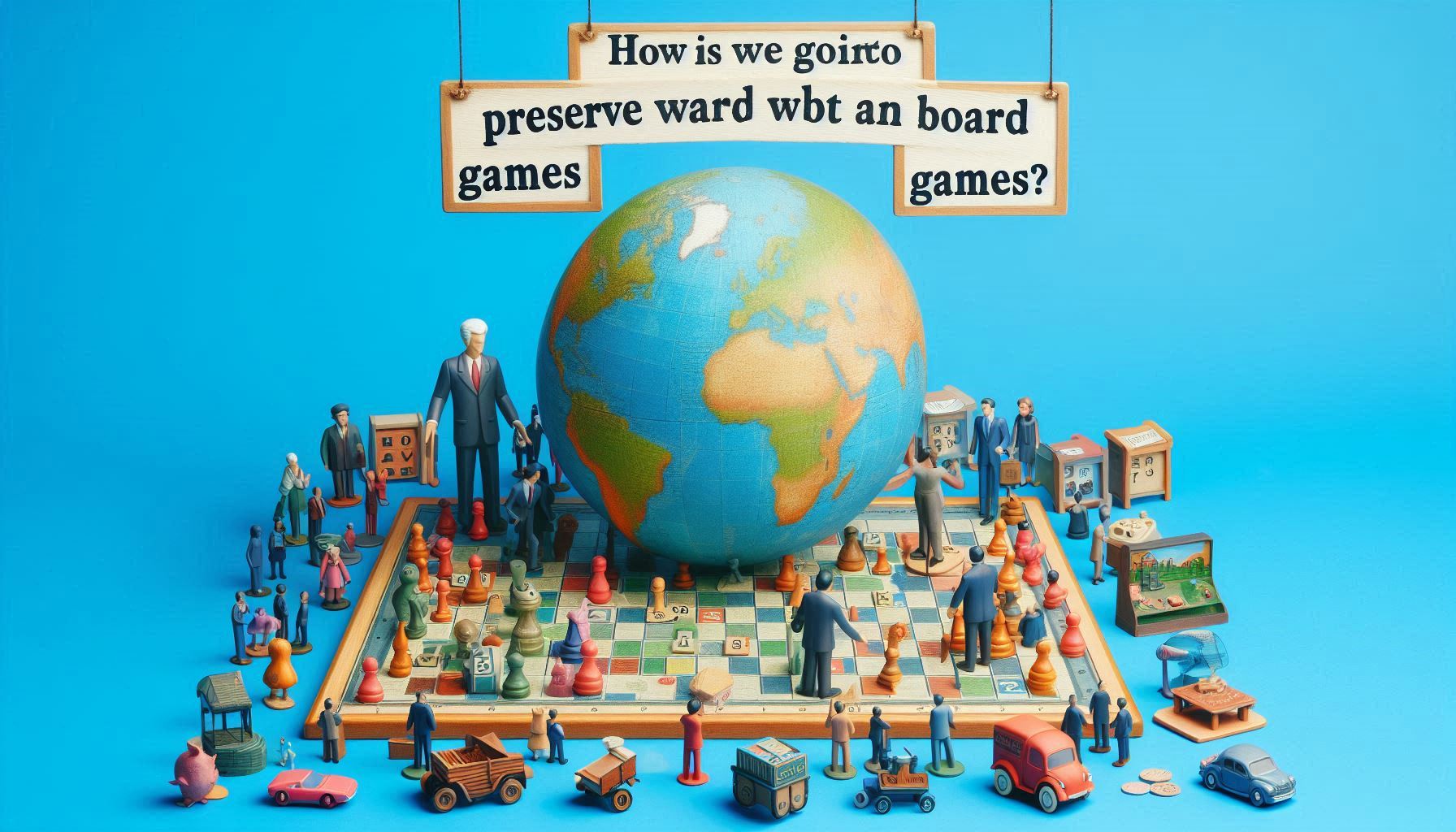
How Are We Going to Preserve Word Games and Board Games?
In an era dominated by digital entertainment, the timeless charm of word games and board games faces the risk of fading into obscurity. These classic forms of entertainment have been a cornerstone of human interaction, fostering creativity, critical thinking, and social bonding for centuries. However, with the rise of video games, smartphones, and streaming platforms, the question arises: How are we going to preserve word games and board games for future generations? This article explores actionable strategies to ensure these beloved games remain relevant and cherished in the modern world.
The Importance of Preserving Word Games and Board Games
Before diving into preservation strategies, it’s essential to understand why word games and board games matter. These games are more than just pastimes; they are cultural artifacts that reflect the values, creativity, and traditions of societies across the globe.
-
Cognitive Benefits: Word games like Scrabble, Boggle, and crosswords enhance vocabulary, spelling, and problem-solving skills. Board games such as Chess, Monopoly, and Settlers of Catan promote strategic thinking, planning, and decision-making.
-
Social Interaction: Unlike digital games, word games and board games encourage face-to-face interaction, fostering communication, teamwork, and healthy competition.
-
Cultural Significance: Many board games and word games have historical roots, offering insights into the cultures and eras from which they originated. Preserving them ensures that these cultural narratives are not lost.
-
Screen-Free Entertainment: In a world where screen time is at an all-time high, word games and board games provide a much-needed break from digital devices, promoting mental well-being.
Given these benefits, preserving word games and board games is not just about nostalgia—it’s about safeguarding tools for learning, connection, and cultural heritage.
Challenges to Preservation
Despite their value, word games and board games face several challenges in the digital age:
-
Competition from Digital Entertainment: Video games, mobile apps, and streaming services offer instant gratification, making it harder for traditional games to compete.
-
Declining Interest Among Younger Generations: Many children and teenagers view board games and word games as outdated, preferring the fast-paced, visually stimulating world of digital gaming.
-
Limited Accessibility: Some board games and word games require specific equipment or setups, which can be inconvenient compared to the ease of downloading a mobile app.
-
Lack of Awareness: Many people are unaware of the vast variety of word games and board games available, limiting their exposure to these forms of entertainment.
To overcome these challenges, a multi-faceted approach is needed to ensure the preservation and continued relevance of word games and board games.
Strategies to Preserve Word Games and Board Games
1. Integrate Technology Thoughtfully
Rather than viewing technology as a threat, it can be leveraged to preserve and promote word games and board games. Digital adaptations of classic games, such as online Scrabble or virtual Chess platforms, make these games more accessible to tech-savvy audiences. Augmented reality (AR) and virtual reality (VR) can also be used to create immersive board game experiences, blending the traditional with the modern.
2. Promote Educational Benefits
Highlighting the cognitive and educational benefits of word games and board games can encourage parents, educators, and institutions to incorporate them into learning environments. Schools can introduce board games as part of their curriculum to teach critical thinking, teamwork, and problem-solving. Similarly, word games can be used to enhance language skills in a fun and engaging way.
3. Revive Interest Through Events and Communities
Organizing game nights, tournaments, and workshops can reignite interest in word games and board games. Local libraries, community centers, and schools can host regular events to bring people together and introduce them to new games. Online communities and forums can also play a crucial role in connecting enthusiasts and sharing resources.
4. Modernize Game Design
To appeal to younger audiences, game designers can modernize traditional word games and board games by incorporating contemporary themes, sleek designs, and innovative mechanics. For example, games like Codenames and Bananagrams have successfully blended classic gameplay with modern twists, attracting a new generation of players.
5. Preserve Cultural Heritage
Many word games and board games have deep cultural roots. Efforts should be made to document and preserve these games as part of cultural heritage. Museums, cultural organizations, and historians can collaborate to create exhibits, archives, and educational materials that celebrate the history and significance of these games.
6. Encourage Family Bonding
Positioning word games and board games as tools for family bonding can help preserve their relevance. Marketing campaigns and initiatives that emphasize the joy of unplugging and spending quality time with loved ones can resonate with families looking for meaningful ways to connect.
7. Support Independent Game Designers
Independent game designers often bring fresh perspectives and creativity to the world of word games and board games. Supporting these designers through crowdfunding platforms, local game stores, and online marketplaces can help sustain innovation and diversity in the industry.
8. Create Hybrid Experiences
Combining physical and digital elements can create hybrid experiences that appeal to a broader audience. For example, board games with companion apps or word games that integrate online multiplayer modes can bridge the gap between traditional and digital gaming.
9. Leverage Social Media and Influencers
Social media platforms and influencers can play a significant role in promoting word games and board games. Game reviews, tutorials, and challenges shared on platforms like YouTube, Instagram, and TikTok can introduce these games to new audiences and create viral trends.
10. Make Games Accessible
Ensuring that word games and board games are accessible to everyone is crucial for their preservation. This includes creating games that are affordable, easy to learn, and inclusive of diverse audiences. Additionally, offering digital versions or print-and-play options can make these games more accessible to people with limited resources.
The Role of Individuals in Preservation
While organizations and institutions play a vital role in preserving word games and board games, individuals also have a part to play. Here are some ways you can contribute:
-
Introduce Games to Others: Share your favorite word games and board games with friends, family, and colleagues. Organize game nights or participate in local gaming events.
-
Support Local Game Stores: Purchasing games from local stores or independent designers helps sustain the industry and encourages innovation.
-
Document and Share: If you have knowledge about traditional or lesser-known games, consider documenting and sharing them through blogs, videos, or social media.
-
Advocate for Inclusion: Encourage the creation of games that are inclusive and accessible to people of all ages, backgrounds, and abilities.
Conclusion
The preservation of word games and board games is not just about holding onto the past—it’s about ensuring that these valuable tools for learning, connection, and cultural expression continue to thrive in the future. By integrating technology, promoting educational benefits, fostering communities, and supporting innovation, we can ensure that word games and board games remain a cherished part of our lives.
So, the next time you gather around a table for a game of Scrabble or Chess, remember that you’re not just playing a game—you’re participating in a tradition that spans generations. Let’s work together to preserve these timeless treasures for the enjoyment of future generations. After all, the question isn’t just how are we going to preserve word games and board games?—it’s why wouldn’t we?






Leave a Reply